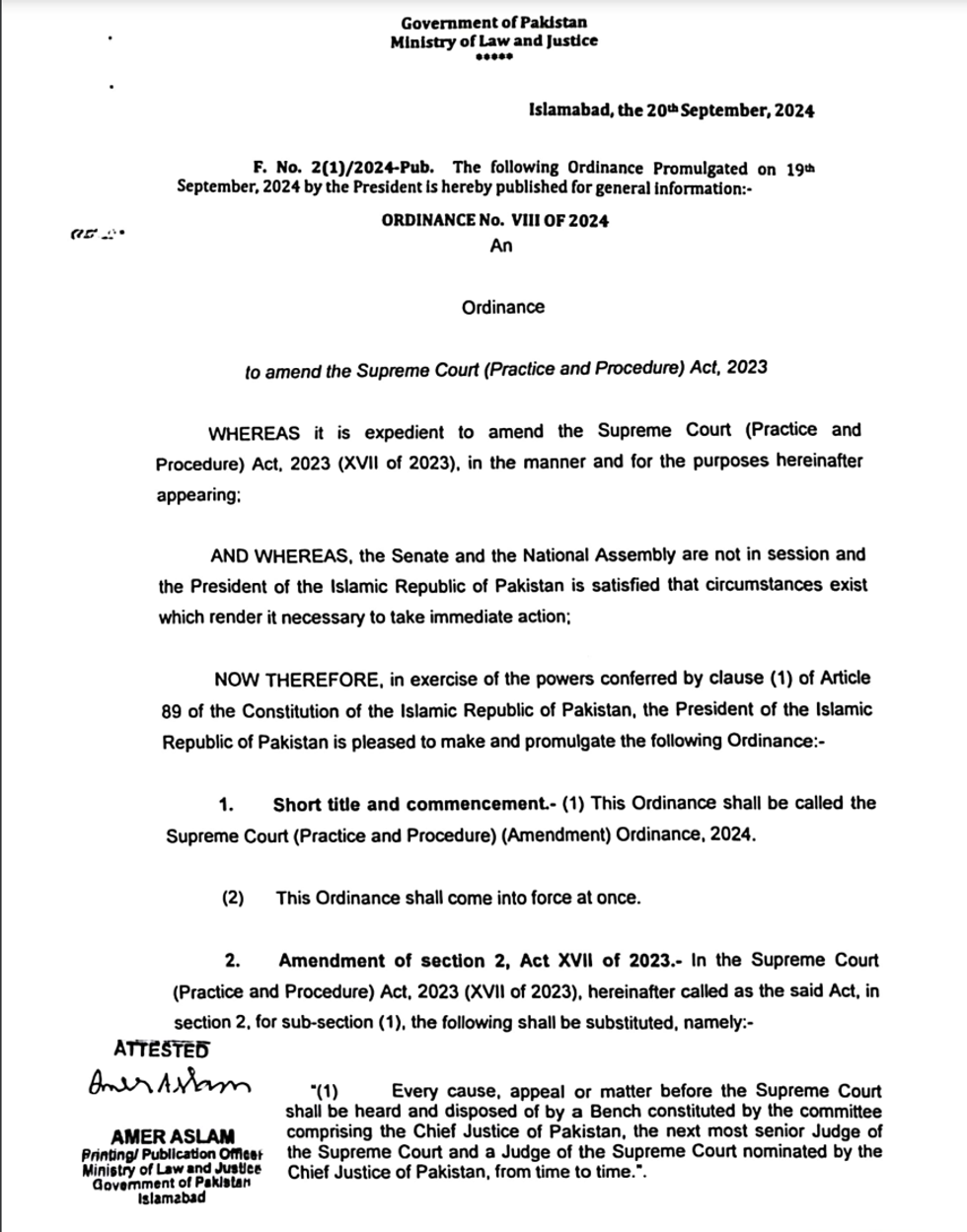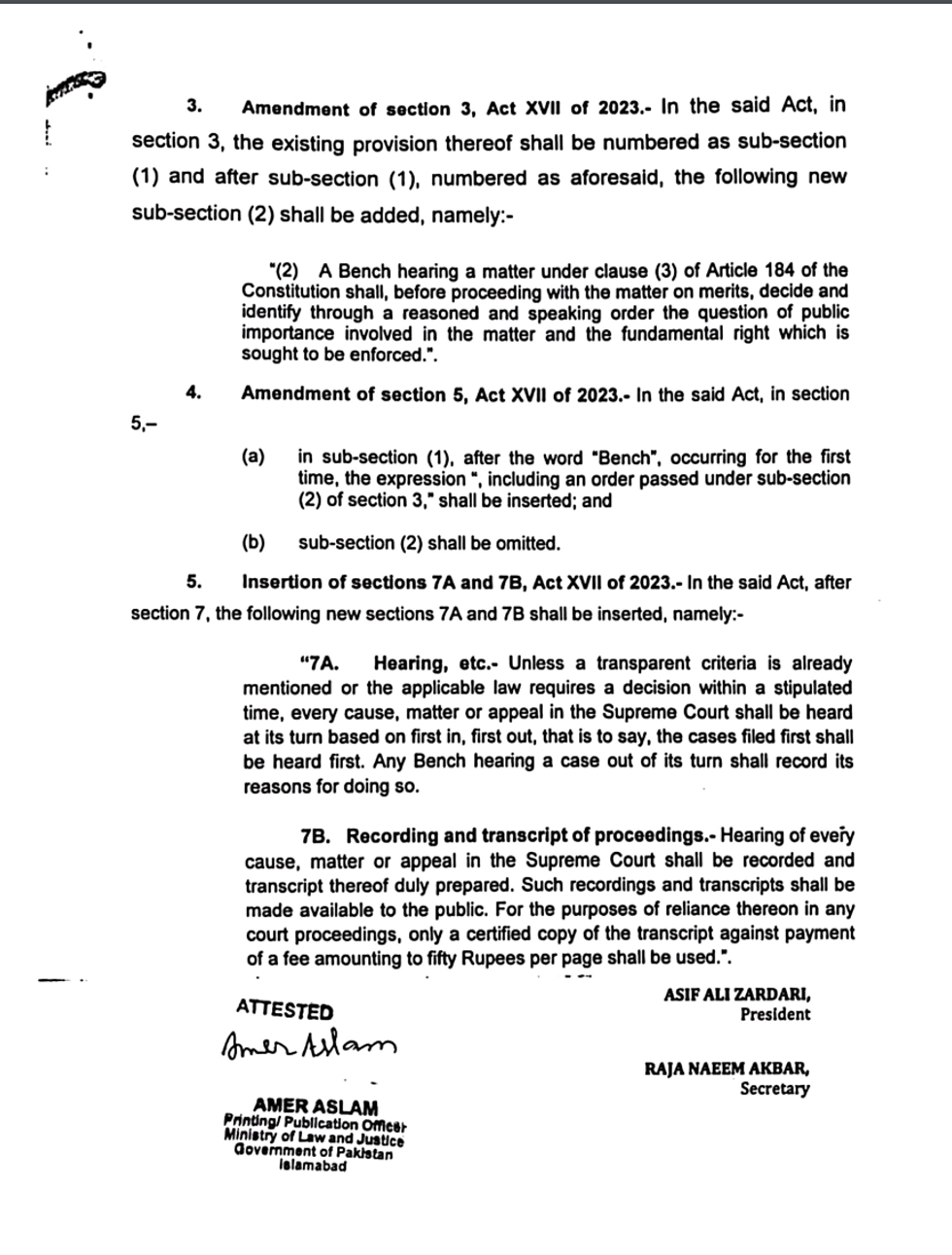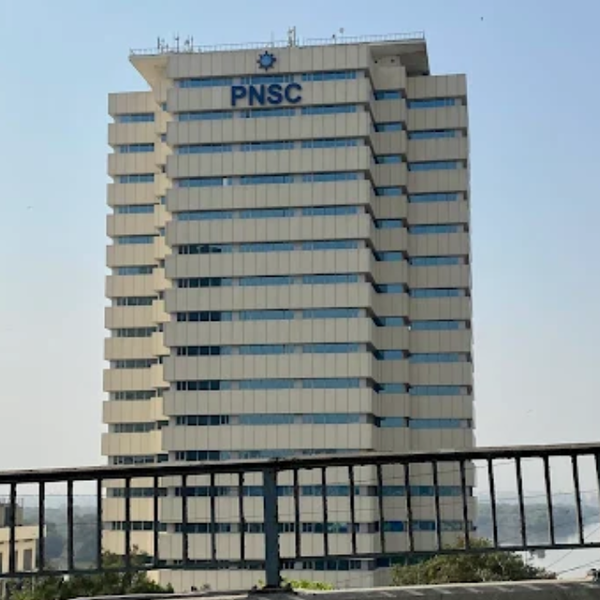Justice on speed: President's Signature & Chief Justice's Orders
Chief Justice of Pakistan Qazi Faez Isa has replaced a senior judge, Justice Munib Akhtar, with Justice Aminuddin Khan on the judges committee, reshaping the group responsible for forming Supreme Court benches and handling suo moto cases.

Aamir Abbasi
Editor, Islamabad
Aamir; a journalist with 15 years of experience, working in Newspaper, TV and Digital Media. Worked in Field, covered Big Legal Constitutional and Political Events in Pakistan since 2009 with Pakistan’s Top Media Organizations. Graduate of Quaid I Azam University Islamabad.

President Asif Ali Zardari signed the ordinance into law as soon as it was approved by the federal cabinet
The government says the ordinance enhances the "transparency of the judicial process".
In less than 24 hours, Pakistan's federal government amended key Supreme-Court related legislation through an ordinance, which President Asif Ali Zardari signed into law, and the Supreme Court ordered the replacement of a dissenting judge in the judge's committee.
The amendment to the Supreme Court (Practice and Procedure) Act 2023 empowers the chief justice with additional powers to nominate any judge as a member of a committee, if another member is unavailable.
The ordinance had been approved earlier on Friday by President Asif Ali Zardari.
As soon as the amendment was signed into law, the Chief Justice of Pakistan Qazi Faez Isa - exercising his new powers under the amended law - swapped the third most senior judge, Justice Munib Akhtar, with Justice Aminuddin Khan in the judges committee.
Justice Aminuddin Khan held the fifth position in the judge's committee.
Justice Mansoor Ali Shah and Justice Munib Akhtar were part of the majority view, along with eight other judges, who accepted the appeals by the Sunni Ittehad Council in the reserved seats case. The court ordered the allotment of the seats to the Pakistan Tehreek-e-Insaf. Meanwhile, Justice Aminuddin Khan was part of the minority view, along with Justice Naeem Akhtar Afghan who had rejected the appeals.
Now the new three-member judges' committee - comprising the CJP, Justice Mansoor Ali Shah and Justice Aminuddin Khan will decide the formation of the Supreme Court benches, and suo moto cases.


Suo moto cases are when the court notices an issue that needs attention (a constitutional matter or a violation of human rights) and decides to start a case on its own to address the problem.
“In exercise of powers under section 2 (1) of the Supreme Court (Practice and Procedure) Act, 2023 as amended Ordinance No. VIII of 2024, the Hon’ble Chief Justice of Pakistan has been pleased to nominate Justice Amin ud din Khan as the third member of the committee," said the office order issued by Jazeela Aslam, registrar of the Supreme Court.
What is the Supreme Court (Practice and Procedure) Act 2023?
The Supreme Court (Practice and Procedure) Act 2023 states that a three-member bench, comprising the Chief Justice of Pakistan (CJP) and the two senior-most judges of the apex court will decide the formation of the Supreme Court benches. The amendment also expands the top court's review jurisdiction, allowing appeals to be filed within 30 days in cases initiated by the court (suo motu).
The Supreme Court (Practice and Procedure) Act 2023 was passed by parliament in April 2023.
How did the government defend the ordinance?
Explaining the amended law, Information Minister Ataullah Tarar said the president had signed off on changes to the law, following the federal cabinet’s approval, to “serve the public interest and enhance the transparency of the judicial process”.







Comments
See what people are discussing